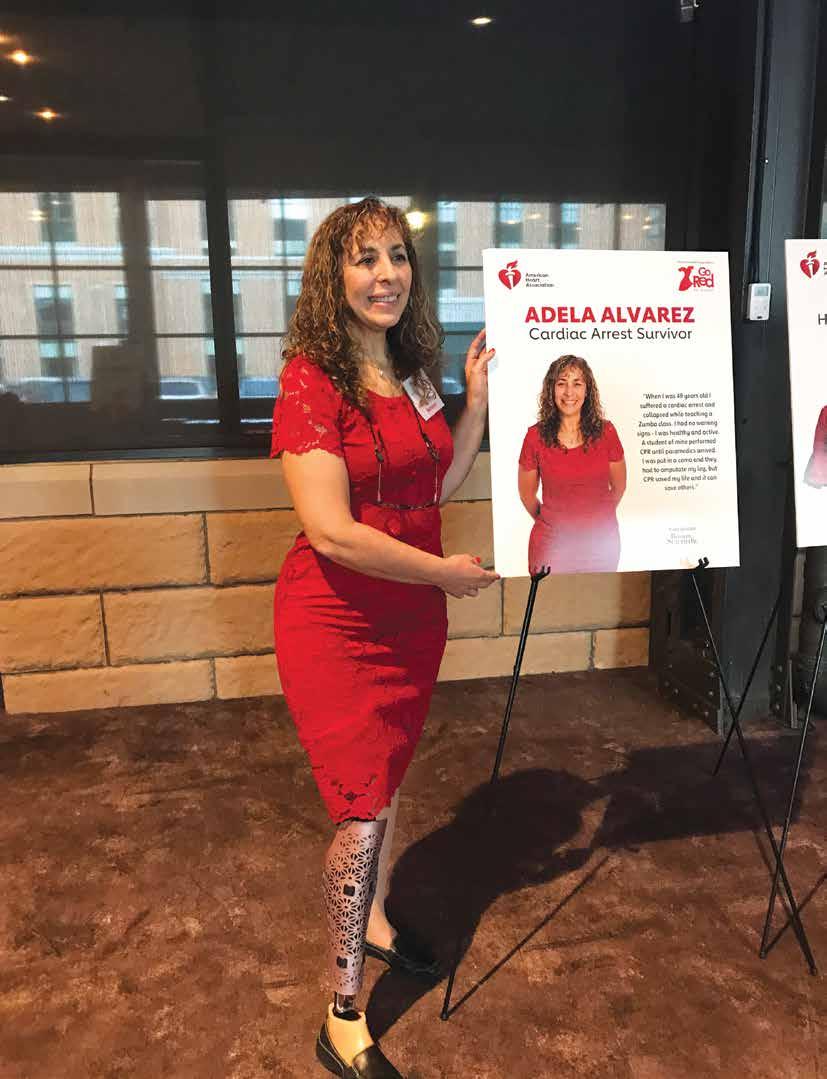
4 minute read
Cardiac arrest survivor tells her story
By Andrea Busche
On January 9, 2014, Adela Alvarez was in the prime of life. At 49 years old, she was fit and healthy. In fact, on that very day, she was teaching a Zumba class.
During class, however, Alvarez suffered a sudden, unexplained cardiac arrest. Her friend and Zumba student, Nan Martin, immediately began performing CPR, which she continued for 25 minutes until paramedics arrived. During that time, Alvarez was without a heartbeat for 20 minutes and considered legally dead.
Alvarez doesn’t recall much about the incident.
“I remember I was excited to be teaching a new song,” she explained. “We were taking a water break. The only thing I remember is that I felt dizzy. I tried to reach the wall and couldn’t — I just collapsed.”
Long recovery
Thankfully, after shocking her heart five times, paramedics were able to revive her. But the next several months were harrowing for Alvarez and her family.
Doctors had to “put her on ice,” as she explained, to help slow down her brain. Her kidneys and liver were failing, and her heart was operating at just 4%. She spent 45 days in a medically induced coma. She lost circulation in her right leg, and doctors ultimately had to amputate above the knee.
After she awoke, her husband,
Ramon, told her they had to amputate her leg to save her life. Her response?
“I still have two hands and one leg. I have a heart and it’s beating and I’m alive.”
Alvarez has adapted, and today feels fortunate for her hightech prosthetic leg.
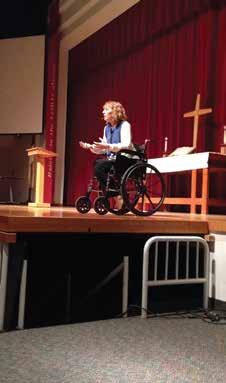
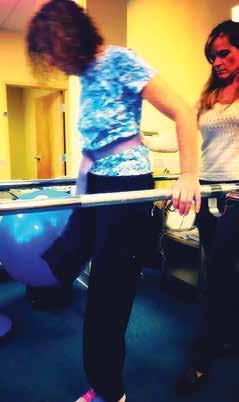
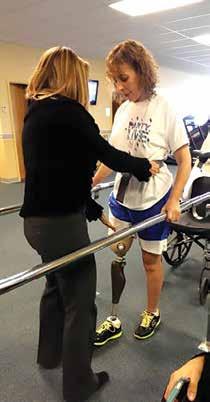
“I’m so blessed to have a prosthetic leg. They call it the X3, and it’s the one that soldiers use. I plug it in every night to charge — it’s computerized. The knee knows how I walk and adjusts to my walking.”
Unexplained
To this day, doctors don’t know why Adela Alvarez experienced a cardiac arrest.
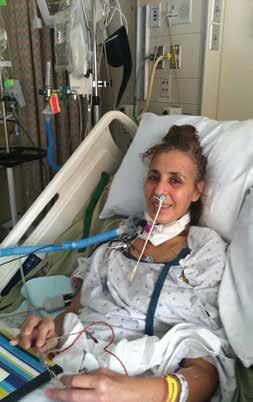
“It took only seconds,” she said. “The doctors don’t know why. My heart was normal before, and is normal today.”
Briana Johnson is the development director for the American Heart Association’s Duluth office. She explained that women’s cardiac symptoms can be different from men’s. For women, cardiac events typically present in one of four ways:
• Uncomfortable pressure, squeezing, fullness or pain in the center of your chest. It lasts more than a few minutes, or goes away and comes back.
• Pain or discomfort in one or both arms, the back, neck, jaw or stomach.
• Shortness of breath, with or without chest discomfort.
• Other signs, such as breaking out in a cold sweat, nausea or lightheadedness.
Lifesaving CPR
In Alvarez’ case, her only symptom was a brief bout of dizziness. Johnson emphasized that CPR truly saved her life.
“Whatever higher power you believe in,” Johnson said, “one thing is for sure: If Adela’s friend hadn’t been there to perform CPR that day, Adela would not be alive right now.”
“Thank God for my friend, Nan,” Alvarez said. “She knew how to do CPR and she saved me.”
CPR is a skill everyone can learn.
Continued on page 8
Adela Alvarez teaches CPR and first aid to Spanish people. Alvarez and her husband Ramon, both originally from Argentina, decided to use Adela’s experience to help others, creating their business called CPR Team Adela. They teach CPR, first aid and basic life support classes and will travel to schools and community centers.
“Everyone reading this story can take 90 seconds to watch a simple video to learn basic, hands-only CPR,” Johnson said. “It is a skill you hope you never need to use, but if you do, you will be forever grateful that you took the time to learn!”
This video can be found at: cpr.heart.org/en/cpr-courses-andkits/hands-only-cpr
Full circle
Alvarez and her husband are originally from Argentina. They moved to the United States in 1999 to work as missionaries, and together share a deep faith in God.
“As a Christian, I know God saved me,” Alvarez said. “He also guided me to exercise and eat healthy in order to survive.”
Alvarez considers it a miracle that she suffered no brain damage, and has no memory loss.
The Alvarez’s decided to use Adela’s experience to help others. Today, they own and operate a business called CPR Team Adela.

“We teach CPR first aid and also BLS (basic life support) for health providers,” she explained. “We are certified through the American Heart Association. We don’t have an office, so we bring our mannequins and travel to dentists’ offices, day cares and other medical facilities.”
Adela and Ramon moved to Duluth from the Twin Cities in 2021.
“We are new in the area, so we are trying to get the word out about our business,” she said.
To book a session with CPR Team Adela, email cprteamadela@ gmail.com or call 763-232-1101.
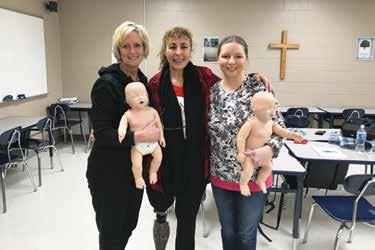
Tips
February is American Heart Month, meaning it’s a good time for all of us to consider ways to improve our health. Johnson provided several tips, known as “Life’s Essential 8” — the key measures for improving and maintaining cardiovascular health, as defined by the American Heart Association.
They include:
• Eat better — Whole foods, fruits, vegetables, lean proteins, etc.
• Be more active — 150 minutes of moderate or 75 minutes of vigorous physical activity per week. Kids should have 60 minutes every day.
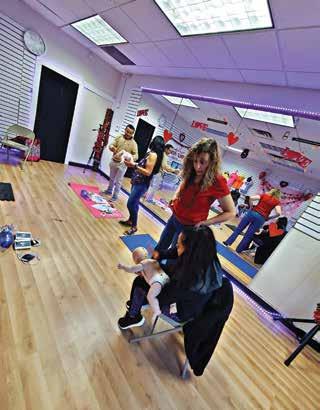
• Quit tobacco — Cigarettes, e-cigarettes and vaping.
• Get healthy sleep — 7-9 hours of sleep per night for adults.
• Manage weight — Optimal BMI is 25.
• Control cholesterol — High levels of non-HDL can lead to heart disease.
• Manage blood sugar — High levels of blood sugar can damage your heart, kidneys, eyes and nerves.

• Manage blood pressure — Levels less than 120/80 mm Hg are optimal.
Be the Beat
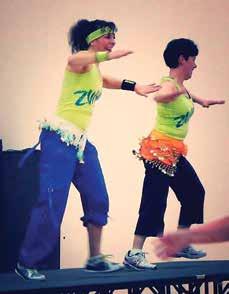
The American Heart Association’s signature women’s initiative is known as “Go Red for Women.” This year’s theme, “Be the Beat,” perfectly encapsulates Adela Alvarez’ story.
“‘Be the Beat’ means being the heartbeat for someone else — literally,” Johnson explained. “It means stepping up and providing the lifesaving service of CPR to keep someone alive until first responders arrive.”
This year’s Northland Go Red for Women event will be held at the DECC on
Wednesday, April 26, 2023.
“We invite everyone to come out and enjoy an evening of education, inspiration and motivation as we come together to raise awareness and celebrate some incredible heart survivors like Adela,” Johnson said.
Visit heart.org/DuluthGoRed to learn more.
Enjoy life
Nine years later, Alvarez remains in excellent health. She is grateful for more time with Ramon; their son, Ezekiel, 33; daughter, Agustina, 27; and granddaughter, Elsa, 1.
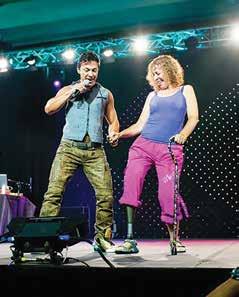
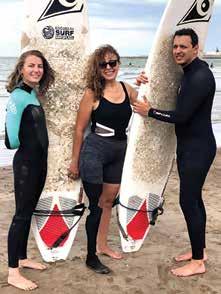
“Take care of yourself,” Alvarez suggested. “Exercise. Try to have a healthy diet. Try to enjoy life. And don’t worry too much — it doesn’t help.
“Enjoy life, because you never know,” she added. “In one second, I could have been dead. God gave me another chance to live. Don’t take anything for granted. Be happy, help others, and take care of yourself. Not only your body, but your soul, your spirit. For me, God was the Andrea Busche is a Duluth










